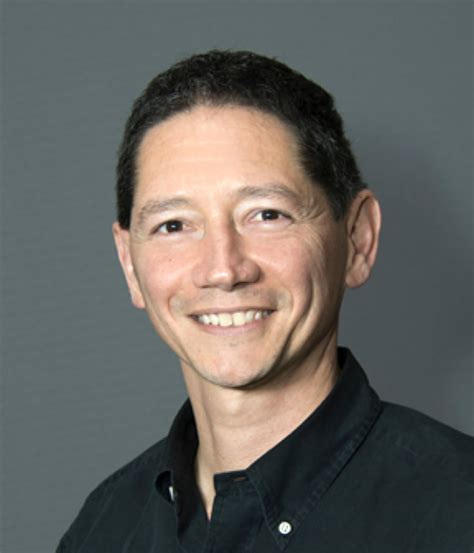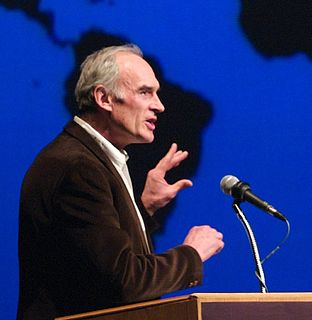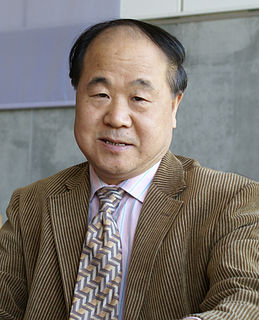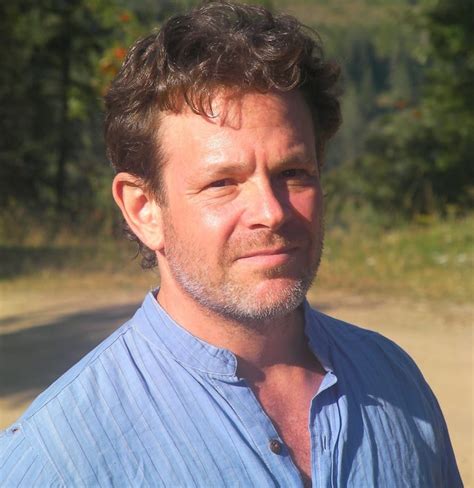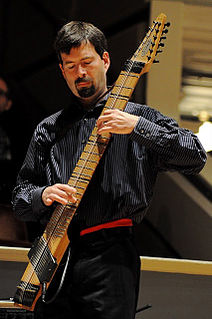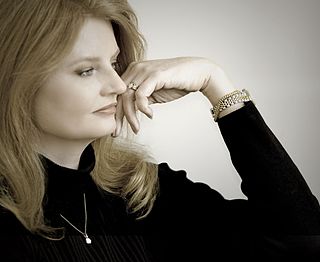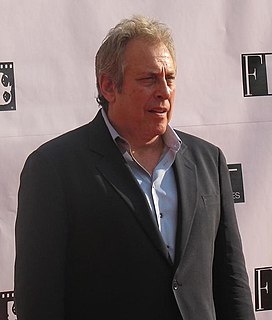Top 703 Advances Quotes & Sayings - Page 12
Explore popular Advances quotes.
Last updated on December 22, 2024.
In a changing world, some jobs disappear and new ones are created. That's how it has been for hundreds of years. When jobs disappear, the vast majority is not because of global trade, but because of technical advances, robotization and so on. So, we - and in particular, EU member states - have to invest more in training and education so that people will have new opportunities if their jobs are cut. The EU can also better utilize its investment and social funds to protect its citizens from swift changes.
In the next century, we will be inventing radical new technologies - machine intelligence, perhaps nanotech, great advances in synthetic biology and other things we haven't even thought of yet. And those new powers will unlock wonderful opportunities, but they might also bring with them certain risks. And we have no track record of surviving those risks. So if there are big existential risks, I think they are going to come from our own activities and mostly from our own inventiveness and creativity.
The progress of science in furnishing the government with means of espionage is not likely to stop with wire tapping. Ways may some day be developed by which the government, without removing papers from secret drawers, can reproduce them in court, and by which it will be enabled to expose to a jury the most intimate occurrences of the home. Advances in the psychic and related sciences may bring means of exploring unexpressed beliefs, thoughts and emotions. 'That places the liberty of every man in the hands of every petty officer' was said by James Otis of much lesser intrusions than these.
Science advances by trial and error. When mistakes are made, the peer-review publication process usually roots them out. Cuccinelli's version of the scientific process would be "make an error and go to trial." Einstein did not arrive at E=mc2 in his first attempt. If he were working in the state of Virginia under Cuccinelli today, he could be jailed for his initial mistakes and perhaps never achieve that landmark equation.
If one advances confidently in the direction of his dreams, and endeavors to live the life which he has imagined, he will meet with a success unexpected in common hours. He will put some things behind, will pass an invisible boundary; new, universal, and more liberal laws will begin to establish themselves around and within him; or the old laws be expanded, and interpreted in his favor in a more liberal sense, and he will live with the license of a higher order of beings.
The chemistry of mind is different from the chemistry of love. The mind is careful, suspicious, he advances little by little. He advises “Be careful, protect yourself” Whereas love says “Let yourself, go!” The mind is strong, never falls down, while love hurts itself, falls into ruins. But isn’t it in ruins that we mostly find the treasures? A broken heart hides so many treasures.
If a woman isn't feeling sexual with herself, she won't respond to advances from any partner, male or female. When this woman goes dancing, she's finding a connection with her own erotic self. It might be about being on a dance floor, feeling free, not having to feel at all responsible for anybody else's well-being. For other people, it might be about going on a hike for four days by herself and reconnecting with nature and strength and endurance and beauty.
New Year, the season for changes in positions and advances in salaries, approaches. If you have in your employ some who deserve more salary, do not compel them to go through the unpleasant ordeal of asking a raise, but, rather, voluntarily increase their remuneration. A raise that comes from the boss without asking is worth a lot more than one that has to be gouged out of him. Is it not true that a great many employers who would not dream of overcharging their customers have no qualms whatever about underpaying their employees if the latter will submit without protest?
It would have been better to come back at the same hour,” said the fox. “If, for example, you came at four o’clock in the afternoon, then at three o’clock I shall begin to be happy. I shall feel happier and happier as the hour advances. At four o’clock, I shall already be worrying and jumping about. I shall show you how happy I am! But if you come at just any time, I shall never know at what hour my heart is to be ready to greet you . . . One must observe the proper rites . . .
Marry me. Nay, marriage will cost us precious moments together. Let us make sweet, passionate love right here. Let me bear your children.” A primal growl signaled Miss Lynn getting over her shock at being thus addressed. She lunged forward; Jack deftly rolled off the bench, jumping up out of her reach. “Goodness, I didn’t expect you to be quite this enthusiastic about my advances. If I don’t play hard to get, how will I ever know whether or not you respect me?
The solutions put forth by imperialism are the quintessence of simplicity...When they speak of the problems of population and birth, they are in no way moved by concepts related to the interests of the family or of society...Just when science and technology are making incredible advances in all fields, they resort to technology to suppress revolutions and ask the help of science to prevent population growth. In short, the peoples are not to make revolutions, and women are not to give birth. This sums up the philosophy of imperialism.
But it seems that something has happened that has never happened before; though we know not just when, or why, or how, or where. Men have left God not for gods, they say, but for no gods; and this has never happened before. That men both deny gods and worship gods, professing first Reason, and the money, and power, and what they call life, or race, or dialect.The church disowned, the tower overthrown, the bells upturned, what have we to do but stand with empty hands and palms upturned in an age which advances progressively backwards?
Sciences usually advances by a succession of small steps, through a fog in which even the most keen-sighted explorer can seldom see more than a few paces ahead. Occasionally the fog lifts, an eminence is gained, and a wider stretch of territory can be surveyed-sometimes with startling results. A whole science may then seem to undergo a kaleidoscopic rearrangement, fragments of knowledge sometimes being found to fit together in a hitherto unsuspected manner. Sometimes the shock of readjustment may spread to other sciences; sometimes it may divert the whole current of human thought.
Science is not a system of certain, or -established, statements; nor is it a system which steadily advances towards a state of finality... And our guesses are guided by the unscientific, the metaphysical (though biologically explicable) faith in laws, in regularities which we can uncover-discover. Like Bacon, we might describe our own contemporary science-'the method of reasoning which men now ordinarily apply to nature'-as consisting of 'anticipations, rash and premature' and as 'prejudices'.
In the constitution of Spain as proposed by the late Cortes, there was a principle entirely new to me:... that no person born after that day should ever acquire the rights of citizenship until he could read and write. It is impossible sufficiently to estimate the wisdom of this provision. Of all those which have been thought of for securing fidelity in the administration of the government, constant reliance to the principles of the constitution, and progressive amendments with the progressive advances of the human mind or changes in human affairs, it is the most effectual.
God has given us prayer as a wartime walkie-talkie so that we can call headquarters for everything we need as the kingdom of Christ advances in the world. Prayer gives us the significance of front-line forces, and gives God the glory of a limitless Provider. The one who gives the power gets the glory. Thus prayer safeguards the supremacy of God in missions while linking us with endless grace for every need.
Who of us would not be glad to lift the veil behind which the future lies hidden; to cast a glance at the next advances of
our science and at the secrets of its development during future centuries? What particular goals will there be toward
which the leading mathematical spirits of coming generations will strive? What new methods and new facts in the
wide and rich field of mathematical thought will the new centuries disclose?
Even today, some opt for the comforts of mystification, preferring to believe that the wonders of the ancient world were built by Atlanteans, gods, or space travelers, instead of by thousands toiling in the sun. Such thinking robs our forerunners of their due, and us of their experience. Because then one can believe whatever one likes about the past - without having to confront the bones, potsherds, and inscriptions which tell us that people all over the world, time and again, have made similar advances and mistakes.
Christianity has held back any further advances in human consciousness for the past thousand years. And for the past century it's been in direct conflict with its illegitimate offspring, Communism (again with a capital C). Both ask the individual to sacrifice his self-interest to the higher goals of the organization. (Which is okay by me as long as it's voluntary; but as soon as either becomes too big - and takes on that damned capital C - they stop asking for cooperation and start demanding it.)
Any higher states of human enlightenment have been sacrificed between these two monoliths.
All kinds of mysterious phenomena exist in this world, but answers to most of them have come with advances in scientific knowledge. Love is the sole holdout-nothing can explain it. A Chinese writer by the name of Ah Cheng wrote that love is just a chemical reaction, an unconventional point of view that seemed quite fresh at the time. But if love can be controlled and initiated by means of chemistry, then novelists would be out of a job. So while he may have had his finger on the truth, I'll remain a member of the loyal opposition.
Indeed, we need not look back half a century to times which many now living remember well, and see the wonderful advances in the sciences and arts which have been made within that period. Some of these have rendered the elements themselves subservient to the purposes of man, have harnessed them to the yoke of his labors and effected the great blessings of moderating his own, of accomplishing what was beyond his feeble force, and extending the comforts of life to a much enlarged circle, to those who had before known its necessaries only.
According to the management expert Peter F. Drucker, the term "entrepreneur" (from the French, meaning "one who takes into hand") was introduced two centuries ago by the French economist Jean-Baptiste Say to characterize a special economic actor-not someone who simply opens a business, but someone who "shifts economic resources out of an area of lower and into an area of higher productivity and greater yield." The twentieth-century growth economist Joseph A. Schumpeter characterized the entrepreneur as the source of the "creative destruction" necessary for major economic advances.
We must recognize that the goal of a cleaner environment will not be achieved by rhetoric or moral dedication alone. It will not be cheap or easy and the costs will have to be borne by each citizen, consumer and taxpayer. How clean is clean enough can only be answered in terms of how much we are willing to pay and how soon we seek success... It is simplistic to seek ecological perfection at the cost of bankrupting the very tax-paying enterprises which must pay for the social advances we seek.
I want to build a clock that ticks once a year. The century hand advances once every one hundred years, and the cuckoo comes out on the millennium. I want the cuckoo to come out every millennium for the next 10,000 years. If I hurry I should finish the clock in time to see the cuckoo come out for the first time.
I'm fascinated by the period that goes from the Industrial Revolution to right after World War II. There's something about that period that's epic and tragic. There's a point after the industrial period where it seems like humanity's finally going to make it right. There were advances in medicine and technology and education. People are going to be able to live longer lives; literacy is starting to spread. It seemed like finally, after centuries of toiling and misery, that humanity was going to get to a better stage. And then what happens is precisely the contrary. Humanity betrays itself.
Man's quest for knowledge is an expanding series whose limit is infinity, but philosophy seeks to attain that limit at one blow, by a short circuit providing the certainty of complete and inalterable truth. Science meanwhile advances at its gradual pace, often slowing to a crawl, and for periods it even walks in place, but eventually it reaches the various ultimate trenches dug by philosophical thought, and, quite heedless of the fact that it is not supposed to be able to cross those final barriers to the intellect, goes right on.
We find upon all occasions, the early Christian writers speak of the Father as superior to the Son, and in general they give him the title of God , as distinguished from the Son; and sometimes they expressly call him, exclusively of the Son, the only true God ; a phraseology which does not at all accord with the idea of the perfect equality of all the persons in the Trinity. But it might well be expected, that the advances to the present doctrine of the Trinity should be gradual and slow. It was, indeed, some centuries before it was completely formed.
As soon as science has emerged from its initial stages, theoretical advances are no longer achieved merely by a process of arrangement. Guided by empirical data, the investigator rather develops a system of thought which, in general, is built up logically from a small number of fundamental assumptions, the so-called axioms. We call such a system of thought a theory. The theory finds the justification for its existence in the fact that it correlates a large number of single observations, and it is just here that the 'truth' of the theory lies.
Whatever withdraws us from the power of our senses; whatever makes the past, the distant, or the future, predominate over the present, advances us in the dignity of thinking beings. Far from me, and far from my friends be such frigid philosophy as may conduct us indifferent and unmoved over any ground which has been dignified by wisdom, bravery, or virtue. That man is little to be envied whose patriotism would not gain force upon the plain of Marathon, or whose piety would not grow warmer among the ruins of Ionia.
I-I’m not making advances,” she told him as she flattened herself against his chest. “You’re just an available s-source of heat.” “So you say,” St. Vincent replied lazily, tucking the quilt more tightly around them both. “However, during the past quarter hour you’ve been fondling parts of my anatomy that no one’s ever dared to touch before.” “I v-very much doubt that.” She burrowed even further into the depths of his coat, and added in a muffled voice, “You’ve probably been h-handled more than a hamper at Fortnum and Mason.
The first instrument I had was made in the late '70s. Back then they had basically one tuning. I shifted slightly away from that tuning right away (to what is now called the Baritone Melody Tuning), because I wanted more string overlap between the two sides.The instrument I currently play has an active pickup system, Fret Rails, a fully adjustible bridge, adjustible truss, Flaps adjustible nut. Even with all of these advances, I'm always struck when I play the older instrument how good they were even then. Emmett's always been great at implementing his ideas.
That’s the problem with all of this. No matter how hard I try, I can’t make it perfect. I can’t keep it in a bottle, can’t ignore reality. Chemicals are involved, the kind scientists try to synthesize and put into pill form, and they’re making tremendous advances every day. They’re winning the war against love. It’s probably inevitable now. There are only two ways to see the world: either no one and nothing is connected to anything, or we are all a random series of carbon molecules connected to each other. Tell me if there’s room for love in either of those scenarios.
Male love circuits get an extra kick when stress levels are high. After an intense physical challenge, for instance, males will bond quickly and sexually with the first willing female they lay eyes on.
Women, by contrast, will rebuff advances or expressions of affection and desire when under stress. The reason may be that the stress hormone cortisol blocks oxytocin's action in the female brain, abruptly shutting off a woman's desire for sex and physical touch.
For my part, I rather distrust men or concerns that rise up with the speed of rockets. Sudden rises are sometimes followed by equally sudden falls. I have most faith in the individual or enterprise that advances step by step. A mushroom can spring up in a day; an oak takes 50 years or more to reach maturity. Mushrooms don't last; oaks do. The real cause for an enormous number of business failures is premature over-expansion, attempting to gallop before learning to creep. Sudden successes often invite sudden reverses.
Popular music of the last 50 years has failed to keep in step with advances in musical theater, namely Stephen Sondheim. But the two have grown apart so that popular music is based more than ever on a rhythmic grid that is irrelevant in musical theater. In popular music, words matter less and less. Especially now that it's so international, the fewer words the better. While theater music becomes more and more confined to a few blocks in midtown.
I think people are much more concerned about money now. There aren't the big advances of the past. You feel the sense of nervousness about the book industry. It's not like before. Not that I knew very much about what it was like because I was a newcomer to it, but I get that feeling that people are more conservative in their book choices and what they are going to publish and what's a sure sell. As opposed to - just like in the economy - a sense of luxury and sense of risk taking ten years ago.
So, if I'm no cheerleader of sports, why write a chapter about it? Sports do have some positive impact on society. They solve problems, such as how to get inner-city kids to spend $175 on shoes. They serve as a backdrop for some of our most memorable commercials. And they remain the one and only relevant application of math. Not only that, but we have sports to thank for most of the last century's advances in manliness. The system starts in school, where gym class separates the men from the boys. Then those men are taught to be winners, or at least, losers that hate themselves.
There are shows, a lot of small cable shows like Breaking Bad, where in the general population nobody watches them really, but everybody in Los Angeles in the industry watches them, and to get a small role on a show like that actually, in some respects, advances your career more than having a huge hit role on a genre show because they are somehow dismissed as a secondary market in this industry
A beautiful literary collection that tells of today's country doctor, somewhat removed from our romantic black-bag image of days gone by, but still fulfilling an essential need in caring for spread-out populations. At times, with today's advances in technology, medicine in rural America looks very like it does in America's cities, but the variety of practices is enormous. The Country Doctor Revisited captures the trials and tribulations of medicine, but also the satisfaction and the extraordinary rewards that come to those who embrace such a practice.
We live in a much more complicated time than when Superman was created 75 years ago. Or even when Superman The Movie was created in the 70s. There are great advances but with those come a great many complications.We felt that the character needed to grow up in that kind of environment and had to face those kinds of colossal choices that were not going to be easy. It's difficult to figure out the right path. And even if you do good there are causalities to your choices. We thought it would be compelling.
Do not expect to be hailed as a hero when you make your great discovery. More likely you will be a ratbag-maybe failed by your examiners. Your statistics, or your observations, or your literature study, or your something else will be patently deficient. Do not doubt that in our enlightened age the really important advances are and will be rejected more often than acclaimed. Nor should we doubt that in our own professional lifetime we too will repudiate with like pontifical finality the most significant insight ever to reach our desk.
The big divide in this country is not between Democrats and Republicans, or women and men, but between talkers and doers. Think about the things that have improved our lives the most over the past century - medical advances, the transportation revolution, huge increases in consumer goods, dramatic improvements in housing, the computer. The people who created these things - the doers - are not popular heroes. Our heroes are the talkers who complain about the doers.



